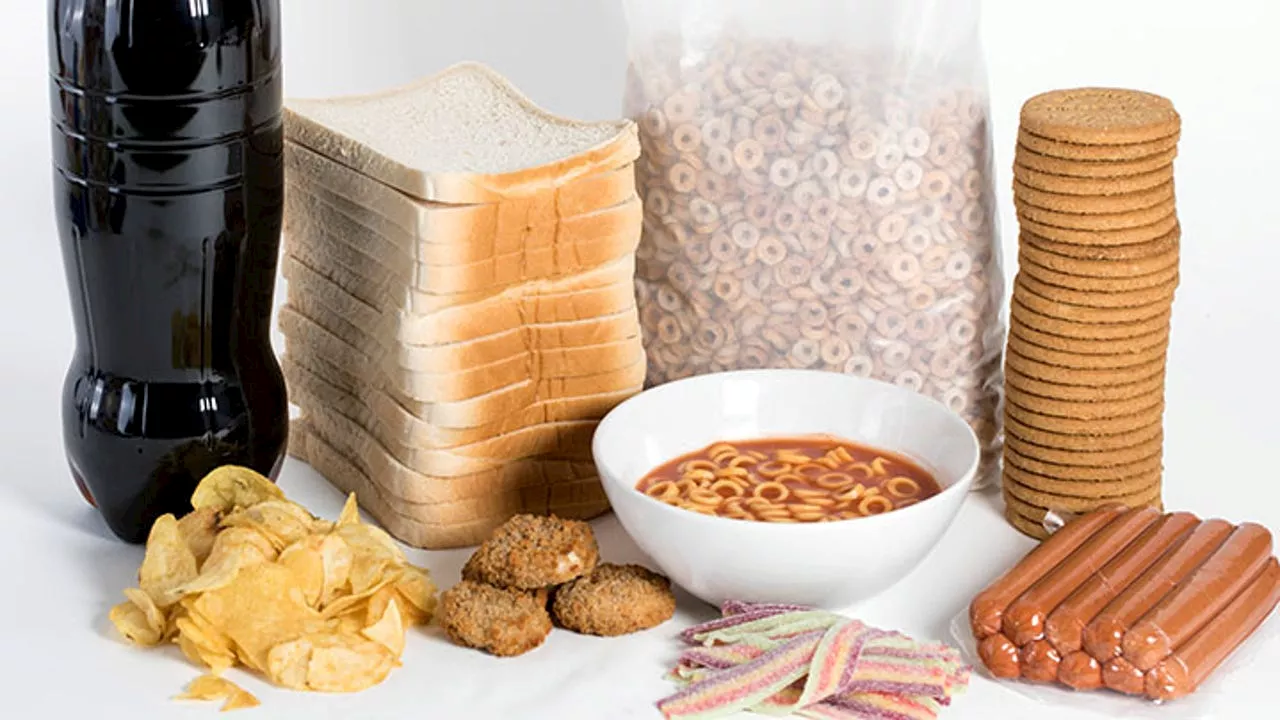Health
Study Links Ultra-Processed Foods to Rising Colon Cancer Risk

A new study from the Mass General Brigham Cancer Institute has revealed a troubling connection between the consumption of ultra-processed foods and an increased risk of developing early signs of colon cancer in young adults. This research highlights a growing concern among health experts regarding the rising incidence of colorectal cancer in individuals under 50 years old.
Researchers analyzed data from nearly 30,000 healthy women and found that those with a higher intake of ultra-processed foods were more likely to develop colon adenomas, which are precursors to colorectal cancer. Ultra-processed foods are defined as items made with ingredients not typically found in home kitchens, including boxed soups, frozen meals, and other packaged products that can have long shelf lives.
Dr. Katherine Van Loon, a professor at the University of California, San Francisco and director of the UCSF Global Cancer Program, stated, “Every patient in my clinic is very, very young.” She noted that while there has been a decrease in colorectal cancer rates among individuals over 45, younger populations are experiencing rising rates, contributing to an increase in mortality from a disease that is largely preventable.
Previous studies have linked early-onset colorectal cancer to factors such as obesity, Type 2 diabetes, sedentary lifestyles, and diets high in red and processed meats and sugars. However, Dr. Van Loon emphasized that many of her young patients do not fit these typical risk profiles. “That’s why this study is so important,” she added, as it provides additional insight into the factors contributing to this alarming trend.
While the study did not specify particular types of ultra-processed foods, Dr. Van Loon indicated that many of these products were staples in the diets of individuals who grew up in the 1970s, 1980s, and 1990s. She believes that it is not too late for individuals to make healthier dietary choices.
“We know from tobacco research that when someone stops smoking, their cancer risk decreases,” she explained. Dr. Van Loon suggests that similar interventions could mitigate the risks associated with years of ultra-processed food consumption. She encourages prioritizing fresh foods, including vegetables and unprocessed meats, in daily diets.
For individuals aged 45 and older, Dr. Van Loon advocates for regular screenings for colorectal cancer. She also underscores the importance of taking any concerning symptoms seriously, regardless of age. “If someone is experiencing bowel changes, blood in their stool, abdominal pain, cramping, or unexplained weight loss, they should see a doctor,” she cautioned. “Just because you’re not yet 45 doesn’t mean those symptoms don’t need medical attention.”
Raising awareness and encouraging earlier medical intervention could be key in reversing the troubling trend of rising colorectal cancer rates in younger populations. As health professionals continue to study the implications of dietary habits, the findings of this study serve as a crucial reminder of the potential dangers associated with ultra-processed foods.
-

 Science2 weeks ago
Science2 weeks agoUniversity of Hawaiʻi Joins $25.6M AI Project to Monitor Disasters
-

 Business3 weeks ago
Business3 weeks agoForeign Inflows into Japan Stocks Surge to ¥1.34 Trillion
-

 Top Stories3 weeks ago
Top Stories3 weeks agoMarc Buoniconti’s Legacy: 40 Years Later, Lives Transformed
-

 Top Stories3 weeks ago
Top Stories3 weeks agoBOYNEXTDOOR’s Jaehyun Faces Backlash Amid BTS-TWICE Controversy
-

 Health3 weeks ago
Health3 weeks agoInnovative Surgery Restores Confidence for Breast Cancer Patients
-

 Sports1 month ago
Sports1 month agoSteve Kerr Supports Jonathan Kuminga After Ejection in Preseason Game
-

 Science1 month ago
Science1 month agoChicago’s Viral ‘Rat Hole’ Likely Created by Squirrel, Study Reveals
-

 Lifestyle1 month ago
Lifestyle1 month agoKelsea Ballerini Launches ‘Burn the Baggage’ Candle with Ranger Station
-

 Entertainment1 month ago
Entertainment1 month agoZoe Saldana Advocates for James Cameron’s Avatar Documentary
-

 Top Stories3 weeks ago
Top Stories3 weeks agoCarson Wentz Out for Season After Shoulder Surgery: Urgent Update
-

 Politics1 month ago
Politics1 month agoDallin H. Oaks Assumes Leadership of Latter-day Saints Church
-

 Lifestyle1 month ago
Lifestyle1 month agoDua Lipa Celebrates Passing GCSE Spanish During World Tour









